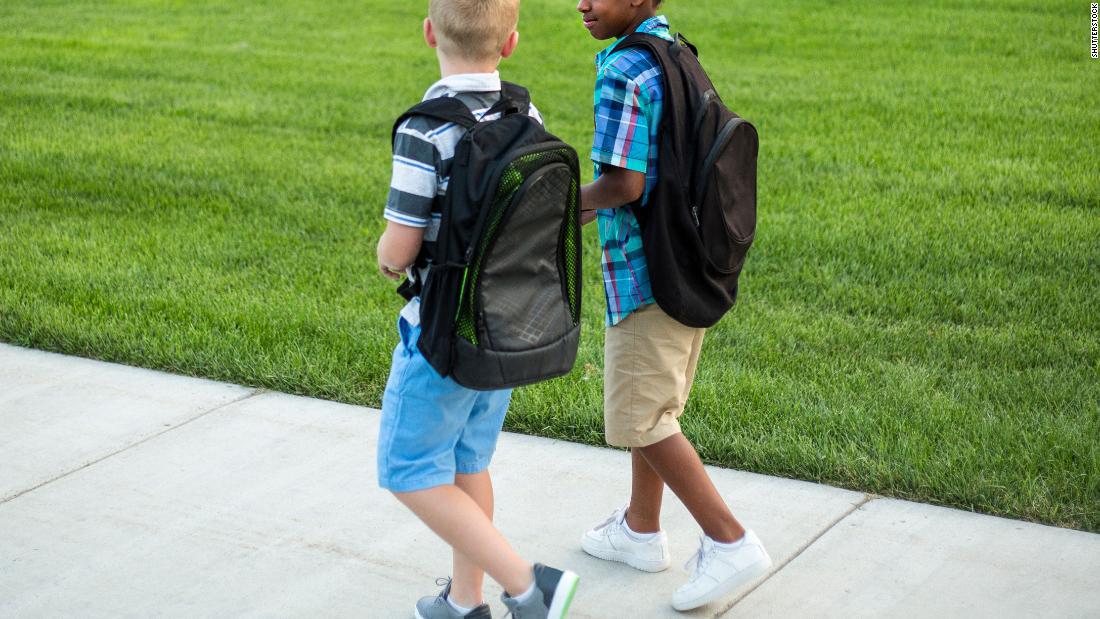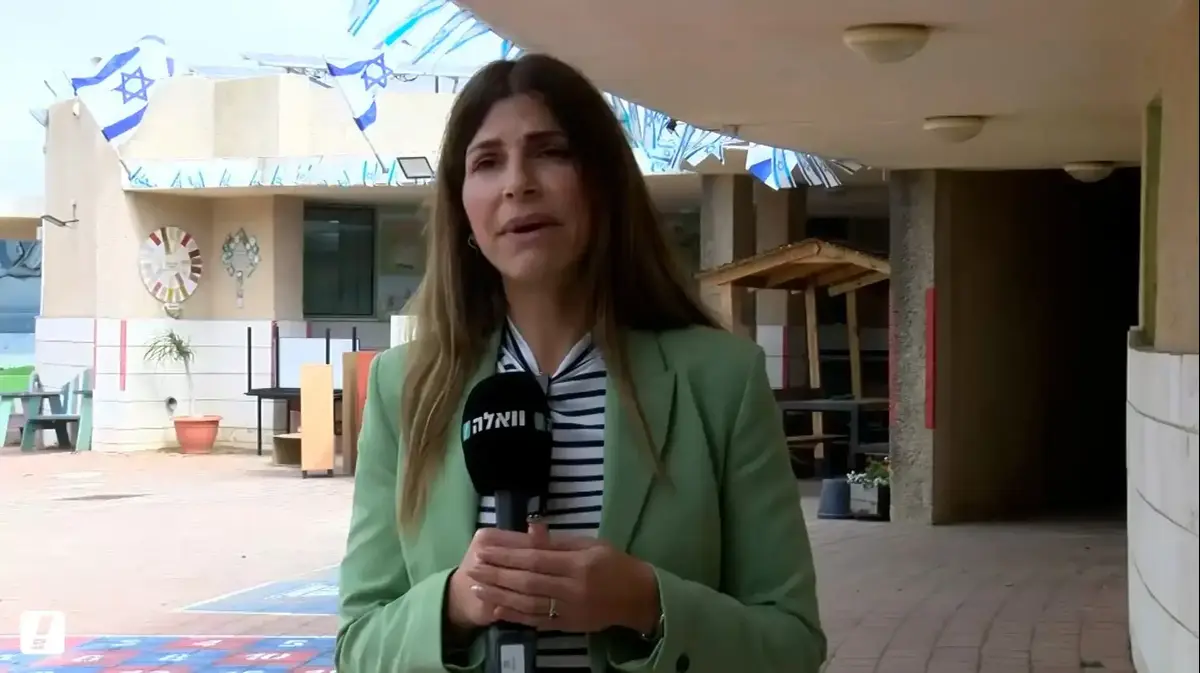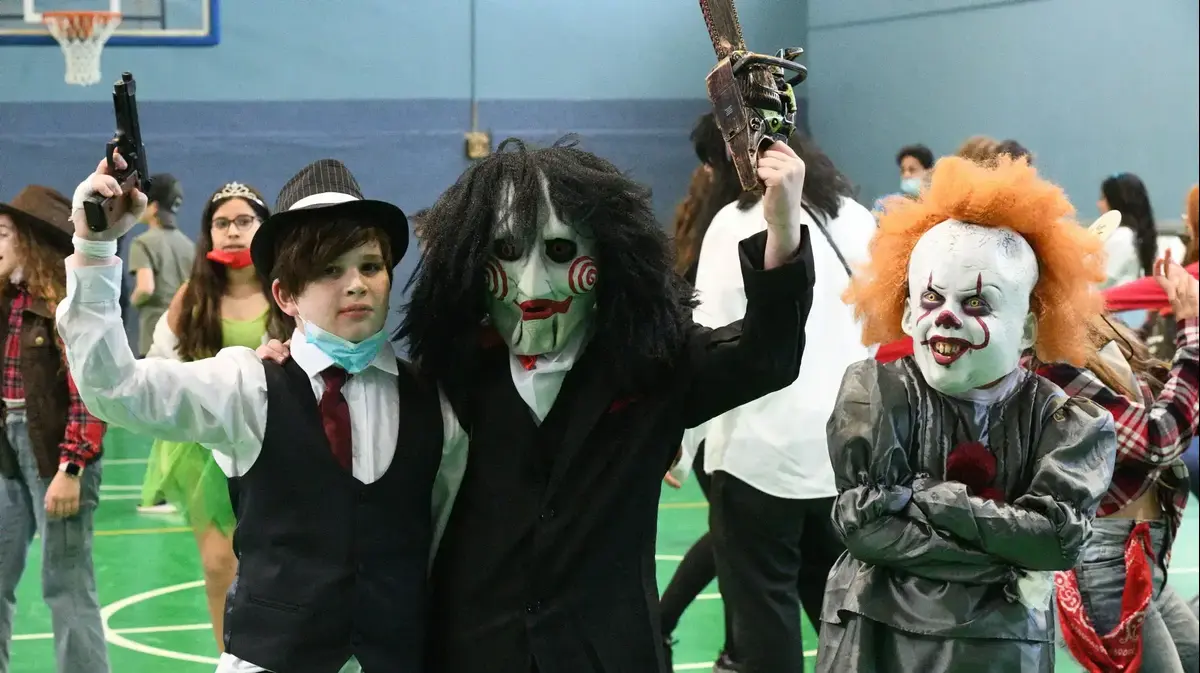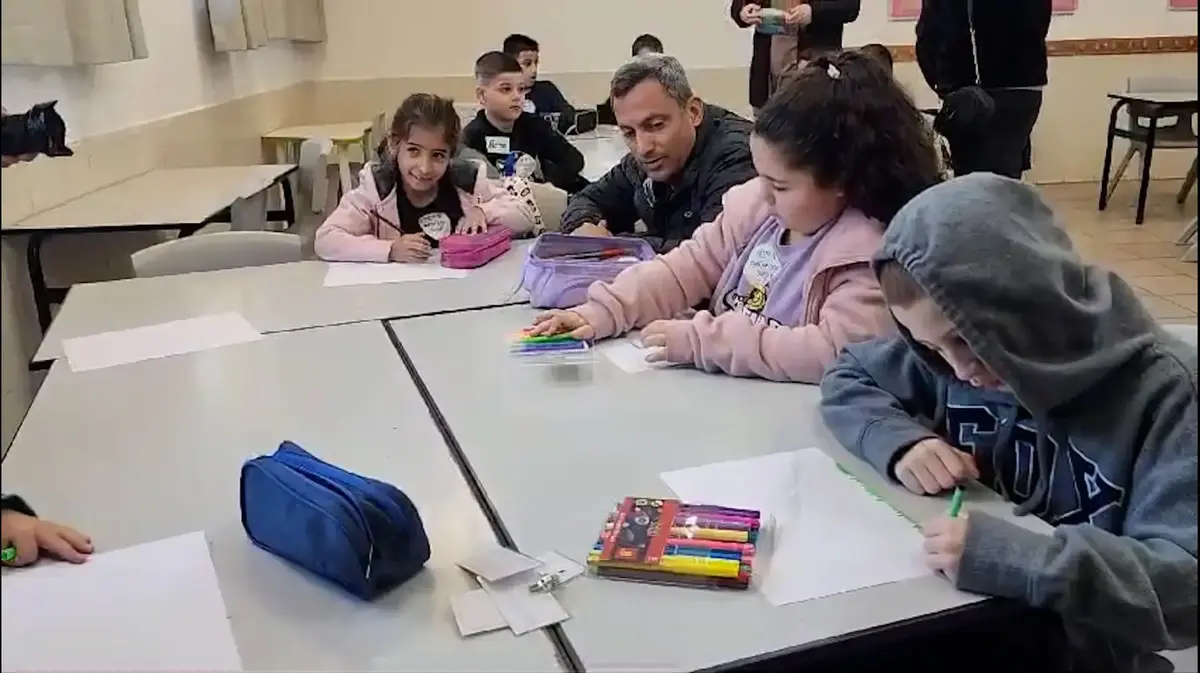USA: ask to protect children from covid-19 0:48
(CNN) -
According to a new survey in the United States, parents, children and experts remain concerned about going back to school amid the increase in covid-19 cases, the prevalence of the delta variant, measures of lax safety and the inability to vaccinate children under 12 years of age.
Looking ahead to the 2021-2022 school year, parents report that their children's concerns include the possibility of virtual school (again), feeling uncomfortable around large groups of children, academic delay and getting along with children. friends, according to a National Child Health Survey from CS Mott Children's Hospital released Monday.
7 Ways to Support Kids' Immune Systems as They Go Back to School and Await the Covid-19 Vaccine
The survey and report are based on responses the researchers collected in June 2021 from 1,669 parents residing in the US with at least one child between the ages of 7 and 18.
The pandemic left its mark on students
The pandemic "wreaked havoc on the school experience for many families last year, with parents and children navigating unpredictable changes in the learning environment and new social, emotional and academic challenges," said Mott Poll Co-Director Sarah Clark. , a research scientist in pediatrics at the University of Michigan, in a press release.
"Our report suggests that those experiences left a mark on students and families, influencing their views and concerns about the upcoming school year."
From the bus stop to after-school classes: this is how children can stay safe from the delta variant
More than a third of parents said that at least one of four factors - academic performance, connections with teachers, relationships with other students, and general attitude toward school - was better for their child from 2020 to 2021 in compared to the previous school year.
However, 56% of parents rated at least one of these aspects as worse for their child last year than in 2019-2020, especially if most of 2020-2021 was done virtually.
Parents also said that helping their children was complicated by factors including their own stress, children's stress, and uncertainty about e-learning.
advertising
University: “academic stress”, anxieties and protocols
School should be considered essential
"Children learn from in-person interactions and relationships. When that is taken away from them without knowing when it is going to be restored, that is extremely difficult for anyone, but especially children," said Dr. Leana Wen, medical analyst from CNN, an emergency physician and visiting professor of health policy and management at the George Washington University Milken Institute School of Public Health.
"You have to understand that full-time, in-person instruction is essential, so you have to work to reduce risk during this essential activity," Wen said.
"No one would question that these data reflect reality, because this is the reality experienced by many people."
The survey also reflected a challenge some parents face in balancing safety concerns and social and educational development priorities.
Parents concerned about covid in schools have an easy weapon at hand, experts say: fresh air
Although more than half of parents want to know how many students and teachers are not vaccinated, only 19% of parents said that details about the vaccination status of students and teachers would affect their decisions about their children's attendance at the face-to-face school.
This apparent contradiction goes back to the fact that schools are essential, Wen said.
"If there is something that people perceive as essential, even if one of the ideal security parameters is not met, they will continue to do so, not because it is safe, but because it is essential," Wen said.
Vaccination of school personnel and other precautions are "extremely important," he added, "but just because we don't have them all, it doesn't mean we won't send our children to face-to-face school."
"Parents may also believe that they can minimize that risk by having their child get the COVID-19 vaccine," Clark said.
Despite concerns about the pandemic, not all of the survey results were negative.
41% of parents reported that their child is more excited about this school year, 16% said they were less excited, and 43% said they were as excited as last year.
And about half of parents feel confident that they can help their child in school, resist difficulties or problems with peers.
Fear of the unexpected and how to deal with them
Tips to prevent the spread of covid-19 in children 1:34
According to the report, the reason for concern about the possible return to virtual learning was the obstacles that some families had to get technology and / or create a comfortable and functional learning environment during the last school year.
"For some children, the decreased level of interaction with teachers also required more supervision or parental assistance throughout the school day, which could be especially difficult for those working from home," Clark said.
Survey: 80% are "very concerned" about their children's learning loss
With COVID-19 cases on the rise in many parts of the US, according to the report, parents should consider helping their children prepare emotionally and logistically for a sudden return to e-learning;
One method might be to come up with a plan based on what worked and what didn't work in the past year.
In the case of children stressed by safety risks, the researchers suggest that parents learn about the precautions taken by the school and discuss them together.
Families can also talk about how children can cope with times when many students crowd during lunch or class changes.
If children struggled with certain subjects last year, parents can ask teachers for advice on how their child can catch up with extra work or the help of a tutor.
Additionally, "some children and teens who may have avoided social anxiety or conflict during virtual school may also need support transitioning back to traditional school in person," Clark said.
What we've learned from schools reopening: masks work
For children concerned about making friends, parents could try setting up lower-risk encounters or play dates, Wen said, depending on the age of the children.
For children excited about going back to school, parents can emphasize the fun things children can anticipate, Wen added, but they should also mentally prepare their children for potential pandemic regressions.
"In general, children probably understand better than adults how quickly things have been changing and evolving, so setting that expectation is important," Wen said.
"You have to talk with children about the different possibilities of what could happen. For example: 'If someone tests positive, this could happen. If schools close, it will be for a certain time and that is why it is important.'
"Even on a day-to-day basis, going through the scenarios can help provide a little more security in a time of uncertainty."
Covid-19return to classes











/cloudfront-eu-central-1.images.arcpublishing.com/prisa/KMEYMJKESBAZBE4MRBAM4TGHIQ.jpg)


